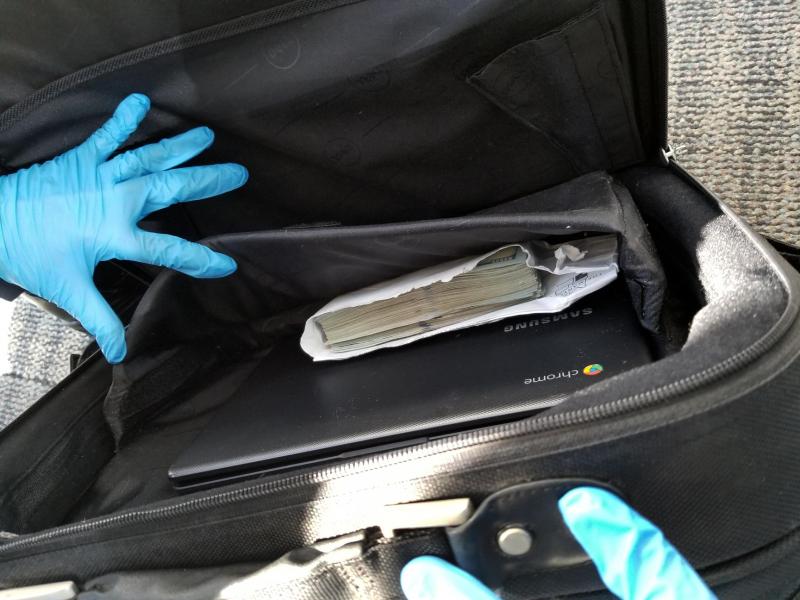STERLING, Va. –U.S. Customs and Border Protection (CBP) officers at Washington Dulles International Airport seized nearly $44,000 in unreported currency from an Ethiopia-bound traveler on Monday.
 CBP officers inspected a traveler as he attempted to board his departing flight. The man, a Cameroon citizen and U.S. lawful permanent resident, reported that he possessed $10,000 and completed a financial reporting form. While examining the man’s carryon bag, CBP officers discovered $43,580. Officers seized $43,000 and returned $580 to the man as humanitarian relief. Officer released him to continue his travel.
CBP officers inspected a traveler as he attempted to board his departing flight. The man, a Cameroon citizen and U.S. lawful permanent resident, reported that he possessed $10,000 and completed a financial reporting form. While examining the man’s carryon bag, CBP officers discovered $43,580. Officers seized $43,000 and returned $580 to the man as humanitarian relief. Officer released him to continue his travel.
CBP is not releasing the man’s name since he was not criminally charged. An investigation continues.
“Customs and Border Protection has observed that unreported bulk currency being smuggled from the United States may be the illicit proceeds from narcotics smuggling, counterfeiting, and other nefarious activities,” said Casey Durst, Director of Field Operations for CBP’s Baltimore Field Office. “CBP will remain steadfast in our commitment to enforcing all of our nation’s laws and intercepting currency smuggling attempts.”
Although there is no limit to the amount of money that travelers may carry when crossing U.S. borders, federal law [31 U.S.C. 5316] requires that travelers report currency or monetary instruments in excess of $10,000 to a CBP officer at the airport, seaport, or land border crossing when entering or leaving the United States. Read more about currency reporting requirements.
During inspections, CBP officers ensure that travelers fully understand federal currency reporting requirements and offer travelers multiple opportunities to accurately report all currency and monetary instruments they possess before examining a traveler’s carryon or checked baggage.

in the traveler's carryon bag.
Consequences for violating U.S. currency reporting laws are severe; penalties may include seizure of most or all of the traveler’s currency, and potential criminal charges. On average, CBP seized about $207,000 every day in unreported or illicit currency along our nation’s borders. Learn more about what CBP accomplished during "A Typical Day" in 2019.
An individual may petition for the return of seized currency, but the petitioner must prove that the source and intended use of the currency was legitimate.
CBP's border security mission is led at ports of entry by CBP officers from the Office of Field Operations. CBP officers screen international travelers and cargo and search for illicit narcotics, unreported currency, weapons, counterfeit consumer goods, prohibited agriculture, and other illicit products that could potentially harm the American public, U.S. businesses, and our nation’s safety and economic vitality.
Please visit CBP Ports of Entry to learn more about how CBP’s Office of Field Operations secures our nation’s borders. Learn more about CBP at www.CBP.gov.
Follow the Director of CBP’s Baltimore Field Office on Twitter at @DFOBaltimore and on Instagram at @dfobaltimore for breaking news, current events, human interest stories and photos.

